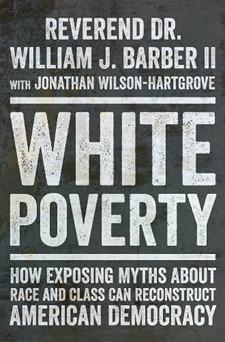Harry Targ
https://godandcountrythemovie.com/
I live in North Central Indiana, a state that has moved to
the right over the last twenty years, largely because of the efforts of leading
Republicans to crush the prominence of the labor movement and the shift of the
Indiana Democratic party to neoliberalism in the Clinton era.
However, in Tippecanoe County there have emerged a variety
of organizations which are concerned about the twenty-first century attack on
women, the rise of racism, rightwing legislative attacks on education, and the erosion
of the environment, and, undergirding all of this, democratic institutions. In addition,
peace and justice groups have blossomed on the campus of Purdue University, so
much so that the Purdue Administration has reversed a tradition initiated in
2007 to have polling booths on the university campus.
To their credit a number of churches and civic organizations
have been showing periodically a powerful new documentary co-produced by Rob
Reiner called God and Country. This is a powerful documentary that
demonstrates how the radical right has appropriated Christianity to serve
political purposes. The film shows that beginning in the 1970s many well-funded
groups and leading political operatives associated with the presidential
campaign of Ronald Reagan, such as Paul
Weyrich, began to challenge the 200-year constitutional commitment to the
separation of Church and State.
The documentary points out, as Nancy MacLean did in Democracy in Chains, that the
resuscitation of the radical right was stimulated by the historic decision
ending racial segregation in public schools, Brown v. Board of Education.
And while the key stimulus for the right-wing resurgence was racism, the film
suggests, the issue that ignited the political and religious right as a mass
movement was abortion. It is the latter issue that generated the movement of sectors
of Christian evangelicalism to the rightwing, thus connecting Brown with
Roe v. Wade.
In sum, politics becomes central to sectors of Christian
evangelicalism when some religious leaders
realize that challenging the separation of
church and state can be financially profitable and can lead to enhanced
political power. And to connect the dots between religion and politics, the
film suggests, selected politicians gained critical support, particularly
Ronald Reagan, and in our own day, Donald Trump. The Christian right and the unconstitutional
claims about the connections between religion and the state have been promoted
by multi-million-dollar support for corrosive media: radio, television, the
internet, music, films, and organized efforts to restructure political
institutions.
From the film’s point of view, and most of us, there was
never in the US constitution any envisioned connections between religion and
politics. God and Country, the ‘founding fathers’ declared must remain
separate. And most voters learned from their childhood that the separation of
church and state was the very essence of US democracy. And this, religious
ideologues of the right challenge today.
The film presents a variety of experts who have studied the
religious right, including current and former Christian evangelical ministers,
who clearly document the “counter revolution” that has occurred in the
religious community. The film shows charismatic ministers, beginning with Jerry
Falwell, who cross the line between religion and politics for their own gain,
financial and political power. The documentary brings the narrative to January
6, 2021 and beyond to show that rightwing evangelicals are willing to “pick up
the gun” to insure that God and Country are merged. This the film suggests
represents a fundamental threat to democracy and the Trump/Vance campaign is its
current instrumentality.
This is a powerful film that deserves to be shown regularly
before the election (and beyond) as it is being shown in my Indiana community.
Having said that I want to note two caveats in reference to
the film. First, while it powerfully addresses racism and patriarchy, it does
not address adequately the class character of the radical right, both its
membership and why its devotees have drifted to the right. The only references
to economic issues are two powerful, but undeveloped, comments by Reverend
William Barber, who through his New Poor People’s Campaign, and his new book, points
out that one third of eligible American voters are poor. (One participant in
the film showing I attended correctly pointed out the important role of the
politics of fear and resentment drawing voters to the far right).
In addition, the film speaks to Christians, albeit in a
powerful way, but does not address those who have moved to the radical right
who are not Christians. Communities committed to uncovering the roots of the
radical right and its constituencies might show a documentary about Jewish
fundamentalism as well, such as the new film Israelism.
Again, despite its shortcomings, I applaud those in my
community who have organized the showings of God and Country and I regard
multiple showings of films like it as a kind of political movement bringing
concerned citizens together for education, discussion, and organizing to defend
democracy.





